Life
Sign up for our newsletter
We summarize the week's scientific breakthroughs every Thursday.
-
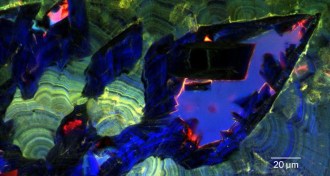 Health & Medicine
Health & MedicineKidney stones grow and dissolve much like geological crystals
Kidney stones are dynamic entities that grow and dissolve, a new study finds, which contradicts the prevailing medical assumption.
-
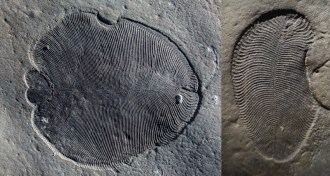 Paleontology
PaleontologyCholesterol traces suggest these mysterious fossils were animals, not fungi
Traces of cholesterol still clinging to a group of enigmatic Ediacaran fossils suggests the weird critters were animals, not fungi or lichen.
-
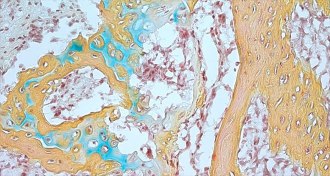 Life
LifeHumans have skeletal stem cells that help bones and cartilage grow
Human skeletal stem cells have been found for the first time.
-
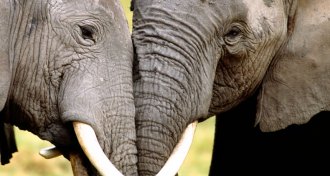 Life
LifeDNA from seized elephant ivory unmasks 3 big trafficking cartels in Africa
Scientists can sleuth out wildlife crime and aid law enforcement by tracing elephant DNA from ivory seizures back to the source.
-
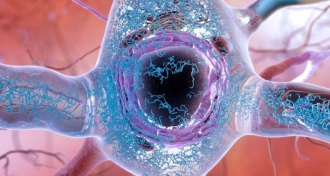 Neuroscience
NeuroscienceOver-the-hill cells may cause trouble in the aging brain
Killing dormant cells in the brains of mice staved off memory trouble.
-
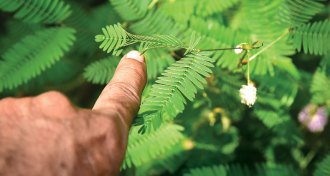 Plants
PlantsSmart plants can teach us a thing or two
‘The Revolutionary Genius of Plants’ challenges the brain-centered view of intelligence.
-
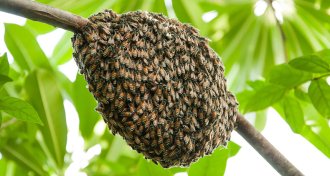 Life
LifeHere’s how clumps of honeybees may survive blowing in the wind
Honeybees clumped on trees may adjust their positions to keep the cluster together when it’s jostled by wind, a new study suggests.
-
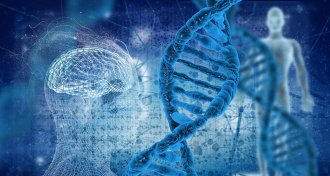 Genetics
GeneticsA recount of human genes ups the number to at least 46,831
A new estimate of the number of human genes adds in some RNA-producing genes.
-
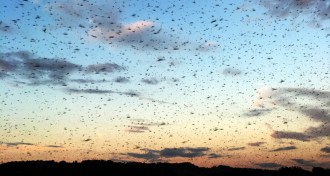 Ecosystems
EcosystemsConfused mayflies wreak havoc on a Pennsylvania bridge
Cleaning a river in central Pennsylvania brought back mayflies, which now pose a threat to motorists crossing a bridge.
-
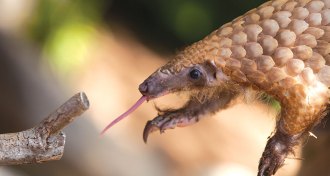 Animals
Animals‘Poached’ offers a deep, disturbing look into the illegal wildlife trade
In ‘Poached,’ a journalist reports from the front lines of the illegal wildlife trade and shows how conservationists are fighting back.
-
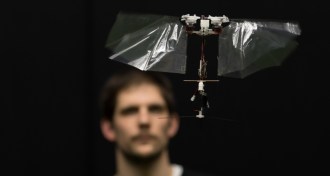 Tech
TechThis flying robot could reveal secrets of the aerial world of insects
A new winged robot with the exceptional agility of a fruit fly could lend insight into animal flight.
-
 Neuroscience
NeuroscienceBrain features may reveal if placebo pills could treat chronic pain
Researchers narrow in on how to identify people who find placebos effective for treating persistent pain.